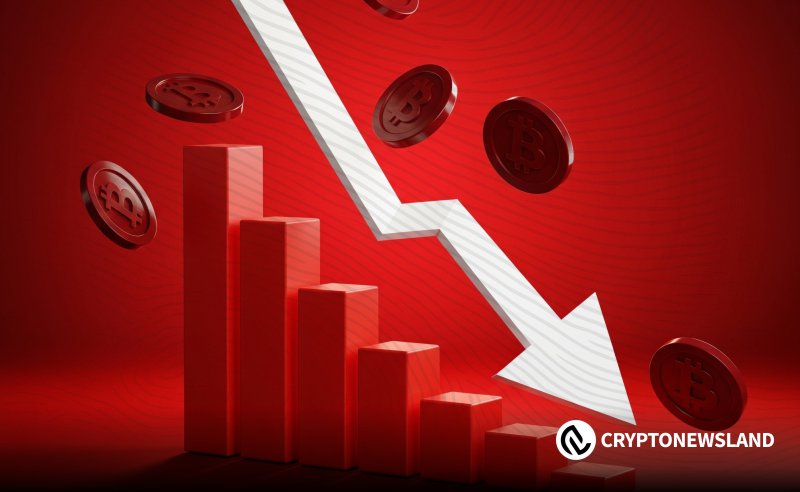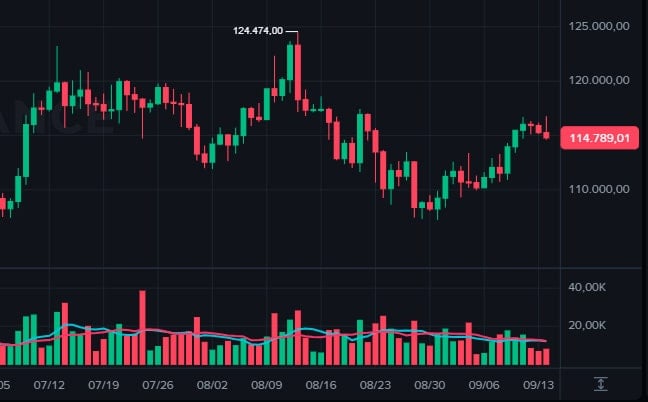News
Stay up to date on the latest crypto trends with our expert, in-depth coverage.

1Bitget US Stock Daily Brief | Trump Plans to Sue Powell; Meta Acquires Manus; Tesla Orders Sharply Decline (December 30, 2025)2Bitget Daily Digest (Dec.30)|Meta acquires Manus for billions of dollars; RWA protocols become the 5th largest DeFi category; Strategy purchases another 1,229 BTC3 Chainlink Is Stuck Around $12 as Selling Pressure Fades: Here’s What Next for LINK Price Rally

Pepe Declines 4.8% to Key Support as Oversold RSI and Bearish MACD Highlight Breakout Potential Below $0.00001168 Resistance
Cryptonewsland·2025/09/15 18:30

Bitcoin Loses Strength as DOGE Falls 10%, BTC Falls Below $115
Portalcripto·2025/09/15 18:30

Nemo Protocol Launches Debt Tokens After $2,6 Million Hack
Portalcripto·2025/09/15 18:30

Stablecoins on Ethereum reach US$166 billion and consolidate DeFi
Portalcripto·2025/09/15 18:30

Forward Industries Prepares Investment in Solana-Native DeFi Protocols
Portalcripto·2025/09/15 18:30

Polkadot approves 2,1 billion DOT limit to reinforce scarcity
Portalcripto·2025/09/15 18:30

London Stock Exchange Launches Blockchain Platform for Tokenized Funds
Portalcripto·2025/09/15 18:30

OG Whale Deposits 1.176 BTC to Hyperliquid After Billion-Dollar Swap
Portalcripto·2025/09/15 18:30

Crypto Funds Receive $3,3 Billion in One Week, AuM Reaches $239 Billion
Portalcripto·2025/09/15 18:30

Monero undergoes 18-block reorganization and tension with Qubic returns
Portalcripto·2025/09/15 18:30
Flash
14:09
MMA partners with Trump family crypto project WLFI to launch a utility token and integrate USD1PANews, December 30 – According to Globenewswire, the mixed martial arts group MMA, listed on NYSE American under the New York Stock Exchange, announced that it has signed a strategic memorandum of understanding (MOU) with the Trump family’s crypto project World Liberty Financial. The two parties will jointly design, issue, and expand the MMA.INC utility token, and will also integrate the stablecoin USD1 to provide stablecoin payments, rewards, and access based on WLFI on-chain infrastructure. MMA previously announced the completion of a $3 million private placement round by issuing 4,285,714 Series A preferred shares, led by American Ventures LLC. Donald Trump Jr., the eldest son of Trump and currently serving as the company’s strategic advisor, also participated in the investment.
14:07
WLFI and MMA sign a memorandum of understanding to jointly design and issue utility tokens for MMABlockBeats News, December 30, the Trump family crypto project WLFI announced the signing of a memorandum of understanding with the US-listed combat sports industry company Mixed Martial Arts Group Limited (MMA), planning to jointly design, issue, and expand the utility token of MMA.INC, and to integrate WLFI's USD1 stablecoin as the foundational layer of MMA.INC's on-chain ecosystem. According to the memorandum of understanding, MMA.INC and World Liberty Financial will cooperate in areas such as token architecture, on-chain economic models, stablecoin reserve design, fund operations, platform integration, joint marketing, and ecosystem governance, aiming to create one of the world's first large-scale, truly practical Web3 sports economies. This will bring blockchain-based interactive experiences to global fans, coaches, athletes, and gyms.
14:07
Mogo Announces Rebrand to Orion Digital, Holding Approximately $24 Million in BitcoinBlockBeats News, December 30, according to Businesswire, the US-listed Bitcoin self-custody company Mogo announced a rebrand to Orion Digital, expected to begin trading on January 2, 2026, under the new ticker symbol ORIO, currently holding approximately $24 million in Bitcoin.
News